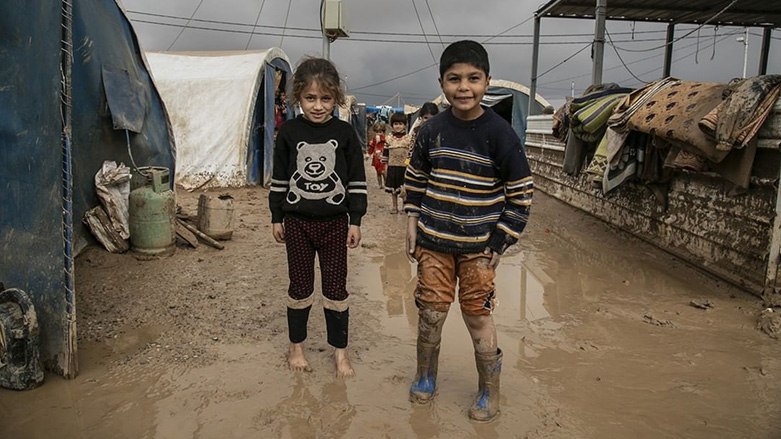UNICEF protects over 160,000 displaced children from harsh winter in Iraq

ERBIL (Kurdistan 24) – UNICEF on Thursday announced it had provided warm clothes to over 160,000 internally displaced and refugee children in Iraq, including areas that are hard to reach, such as Sinjar (Shingal) on the Syrian border.
“Although fighting has subsided in Iraq, an estimated 1.85 million people, including 825,000 children, remain displaced,” said Henrietta Fore, UNICEF’s Executive Director.
“One-third of all displaced children live in camps, in poorly insulated tents, often with no winter clothes or shoes. These children have little protection against flooding and the bitter cold, putting them at risk of illness, hypothermia, and death.”
The organization mentioned that as part of their winter response, they provided supplies to over 100,000 displaced children in camps in Anbar and around Mosul to keep them warm.
UNICEF noted that their winter support has also included vulnerable Syria refugees through the innovative use of vouchers, allowing them to acquire supplies to fight the bitter cold.
In mountainous areas like Shingal, temperatures drop below freezing, exposing children and pregnant mothers – many of them living in camps - to harsh winter elements. UNICEF is providing humanitarian assistance to keep the vulnerable minorities warm, which includes almost 50,000 Ezidi children and over 2,500 pregnant Ezidi mothers in the area, who received coats, boots, hats, gloves, sweaters, and trousers.
“We all need to do the best we can to make sure that vulnerable families do not spend another winter out in the cold in camps or in temporary shelters,” Fore continued.
“Now that the violence has subsided, and a new government is in place, Iraq has a unique window of opportunity to rebuild the country for all its children, so that they can live in peace and harmony.”
Although Iraq declared victory against the Islamic State in Dec. 2017, over 1.2 million displaced people and refugees have remained in the autonomous Kurdistan Region, according to the Region’s Joint Crisis Coordination Center. Many refuse or are incapable of returning to their liberated areas due to the lack of basic services and ongoing security threats in their hometowns.
Editing by Nadia Riva
